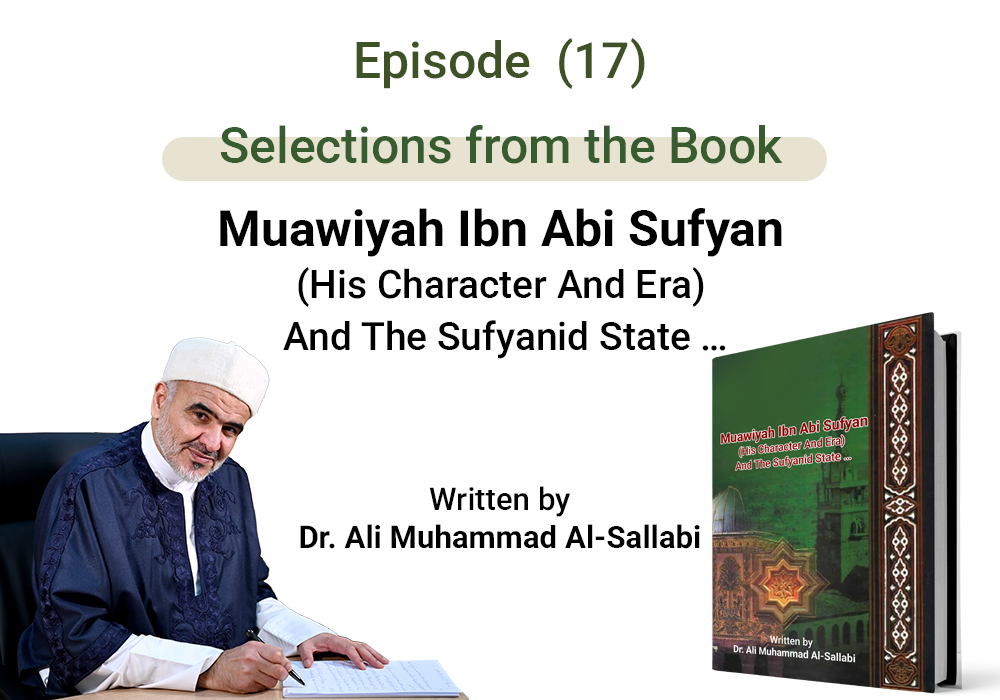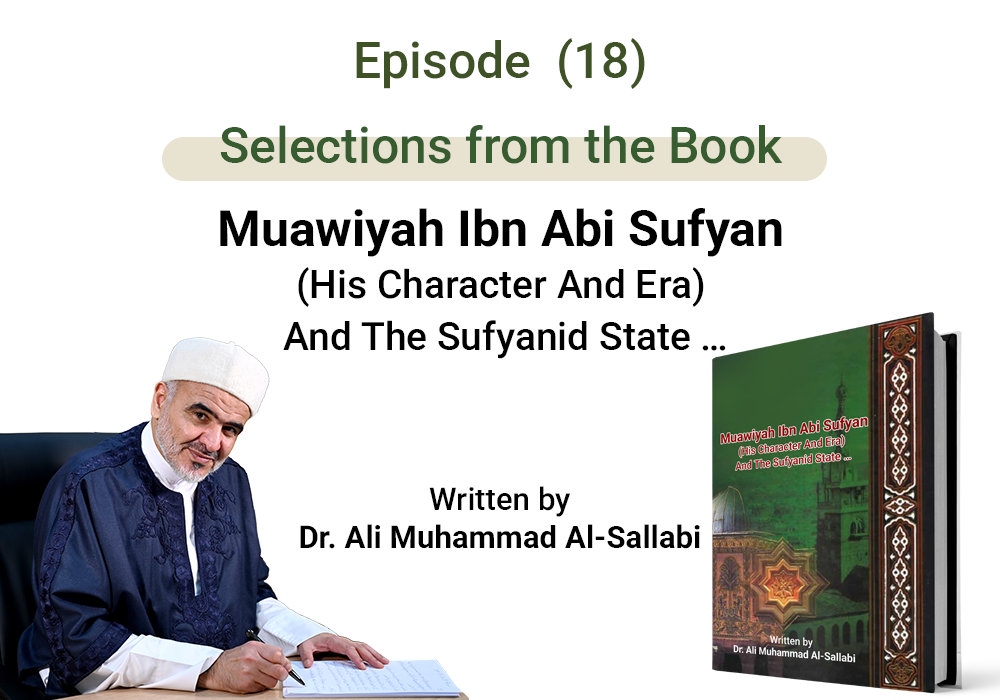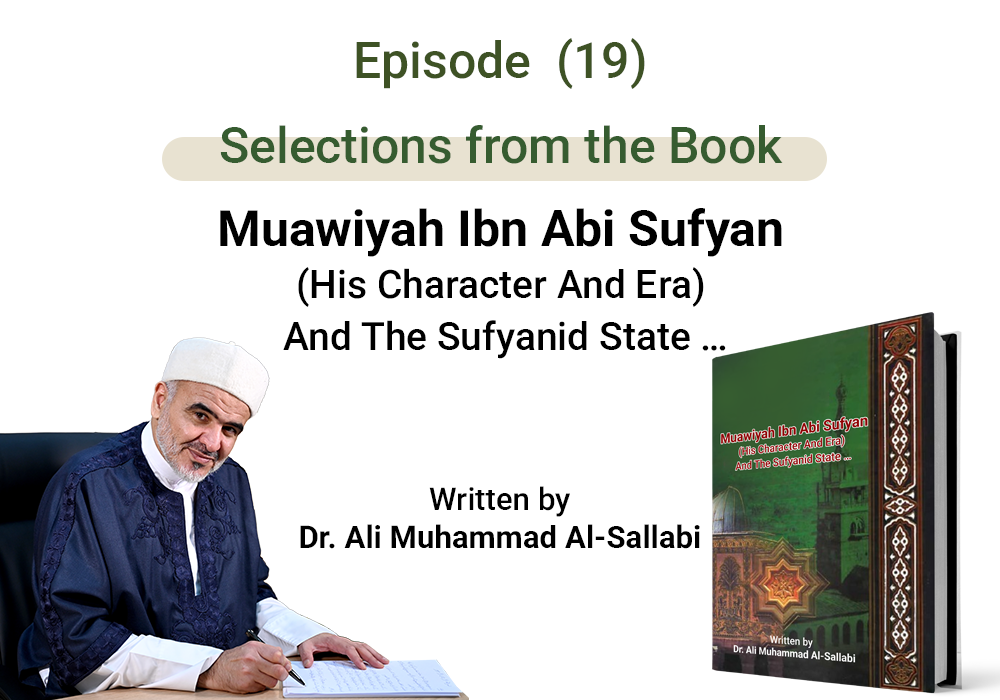The Martyrdom Of The Commander Of The Faithful, Ali, And Muawiyah’s Reception Of The News Of His Death
Selections from the Book Muawiyah Ibn Abi Sufyan (His Character And Era) And The Sufyanid State …
Written by Dr. Ali Muhammad al-Sallabi...
Episode (17)
When Ali, may Allah be pleased with him, was unable to prepare the army as he wished and saw their abandonment of him, he became weary of life and wished for death. He would turn to Allah in supplication, asking Him, the Exalted, to hasten his death. It was narrated that he once delivered a sermon and said: “O Allah, I have grown weary of them, and they have grown weary of me. I am fed up with them, and they are fed up with me. So relieve me of them and relieve them of me. What prevents the most wretched of you from dyeing this [his beard] with blood?”—and he placed his hand on his beard.
Ali, may Allah be pleased with him, persistently made such supplications in his final days. Jundub narrated: They crowded around Ali, may Allah be pleased with him, until they trampled his saddle, and he said: “O Allah, I am fed up with them and they are fed up with me. I have come to hate them and they have come to hate me. So relieve me of them and relieve them of me.”
In another narration from Abu Salih: I witnessed Ali place the Qur’an on his head until I heard the rustling of the pages. He said: “O Allah, I asked them for what is in it, and they withheld it from me. O Allah, I am fed up with them and they are fed up with me. I have come to hate them and they have come to hate me. They have forced me to act contrary to my character. So replace me with someone worse for them, and replace them with someone better for me. Melt their hearts like salt melts in water.”
In another report: He did not remain more than three days—or something close to that—before he was killed, may Allah have mercy on him.
Al-Hasan ibn Ali said: Ali, may Allah be pleased with him, said to me: “Last night, the Messenger of Allah (peace be upon him) appeared to me in my dream”. I said: “O Messenger of Allah! What I have endured from your nation of crookedness and hostility?!” He said: “Supplicate against them”. I said: “O Allah, replace me with someone better than them, and replace them with someone worse than me for themselves”. Al-Hasan, may Allah be pleased with him, said: Then he went out, and the man struck him.
When the news of Ali’s killing reached Muawiya, may Allah be pleased with them both, he began to weep. His wife said to him: “You weep over him when you fought against him?” He replied: “Woe to you! You do not know what the people have lost of virtue, knowledge, and Fiqh.”
Muawiyah used to write to Ali ibn Abi Talib, may Allah be pleased with him, asking him about matters that occurred, seeking his judgment. When he received news of Ali's death, he said: “Fiqh and knowledge have perished with the death of Ibn Abi Talib.” His brother Utba said to him: “Do not let the people of al-Sham hear this from you.” He replied: “Leave me be.”
During his caliphate, Muawiyah, may Allah be pleased with him, asked Dhirar al-Suda’i to describe Ali, may Allah be pleased with him. Dhirar said: “Spare me, O Commander of the Faithful”. Muawiyah said: “You must describe him”. Dhirar replied: “If I must, then by Allah, he was far-sighted, strong in will. He spoke decisively and judged justly. Knowledge gushed from him, and wisdom was spoken through him. He was alienated from the world and its glitter, and found comfort in the night and its solitude. He was abundant in tears, deep in thought. He was pleased with simple clothing and coarse food. Among us, he was like one of us; he would answer us when we asked, and inform us when we inquired. By Allah, despite his closeness to us and our closeness to him, we could scarcely speak to him out of awe. He honored the people of religion and brought the poor near. The strong could not hope to gain anything wrongfully from him, and the weak would never despair of his justice.
I bear witness that I saw him on one of his nights, when the darkness of night had settled and the stars had vanished, clutching his beard, writhing like a sick person, weeping like a grieving one, saying: ‘O world, deceive someone else! Have you turned toward me? Are you longing for me? Far, far! I have divorced you three times—there is no return. Your life is short, your danger is great. Ah, how little provision and how far the journey, how lonely the road!’”
Muawiyah wept and said: “May Allah have mercy on Abu Al-Hasan. By Allah, he was indeed like that. And how is your grief over him, O Dhirar?” He said: “Like the grief of a mother whose child was slaughtered in her lap.”
Umar ibn Abd al-Aziz, may Allah have mercy on him, said: “I saw the Messenger of Allah (peace be upon him) in a dream, and Abu Bakr and Umar were sitting beside him. I greeted him and sat. While I was sitting, Ali and Muawiyah were brought and entered a house whose door was then shut, while I looked on. It wasn’t long before Ali came out saying: ‘Judgment was given for me, by the Lord of the Ka‘ba’. And shortly after, Muawiyah came out saying: ‘I have been forgiven, by the Lord of the Ka‘ba.’”
- Ali Muhammad al-Sallabi, Muawiyah Ibn Abi Sufyan (His Character And Era) And The Sufyanid State, pp. 309-312.
- The Beginning and the End (8/133).
- Comprehension (3/1108).
- History of Islam during the era of the Rashidun Caliphs, p. 649.
- Biographies of the Noble Figures (3/144).
- Singles and duals by Ibn Abi Asim (1/37) with a good chain of transmission; The Caliphate of Ali, p. 432.
- Musannaf Abd al-Razzaq (10/154) with a sound chain of transmission; Al-Tabaqat (3/4).
For further information and review of the sources for the article, see:
The Book of “Muawiyah Ibn Abi Sufyan (His Character And Era) And The Sufyanid State” on the official website of Sheikh Dr. Ali Muhammad al-Sallabi:






